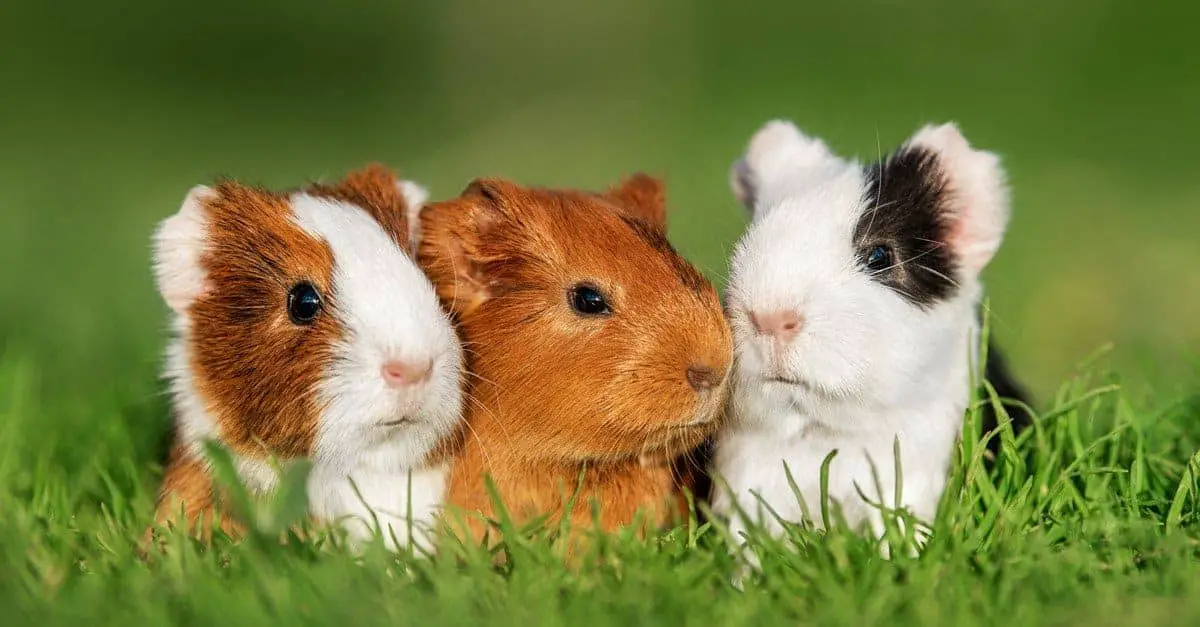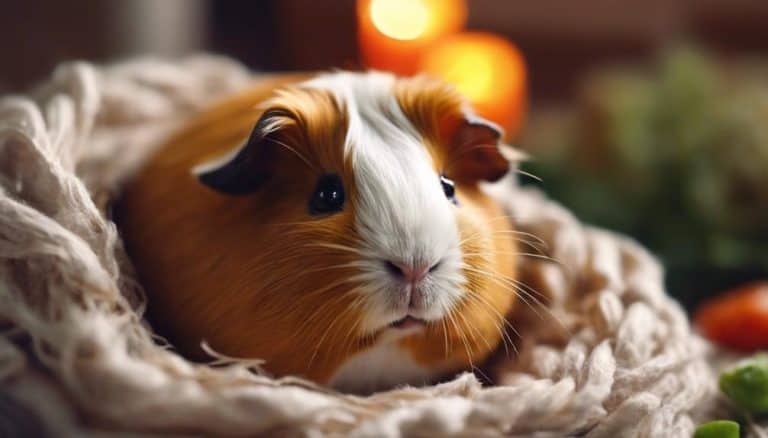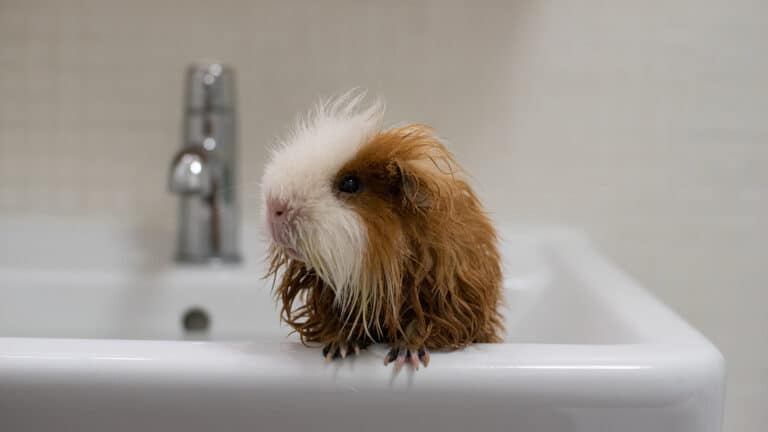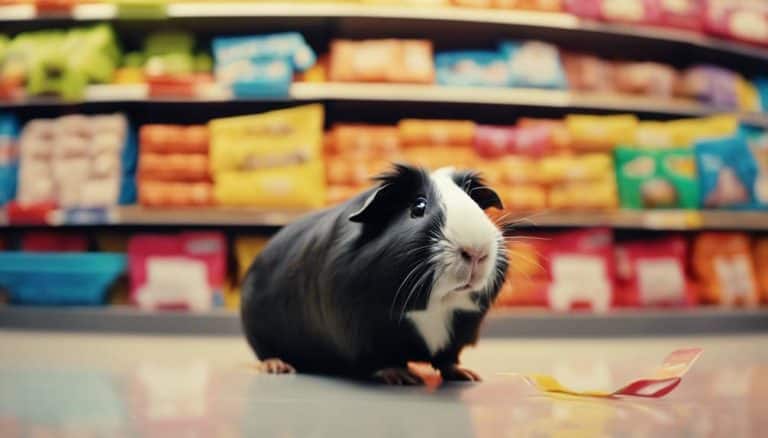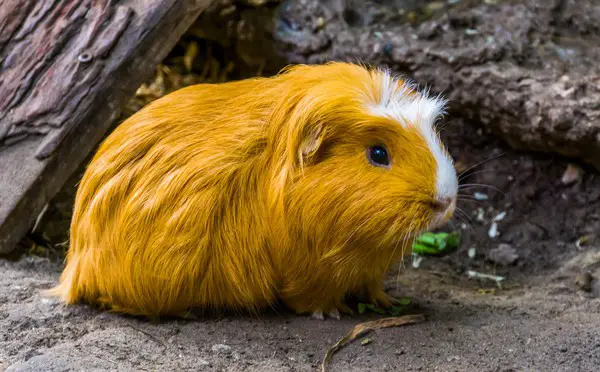Debunking Myths: Can You Get Sick from Kissing a Guinea Pig?
In the realm of pet ownership, few animals are as charming and delightful as guinea pigs. With their small size and friendly nature, they have become increasingly popular companions for individuals and families alike.
However, as with any new addition to our lives, it is important to separate fact from fiction when it comes to potential health concerns. One prevalent myth surrounding these adorable creatures is the belief that kissing a guinea pig can make you sick.
In this article, we will delve into the science behind this notion and debunk any misconceptions associated with it.
Join us as we uncover the truth about whether or not there is indeed a risk of falling ill from sharing a smooch with these lovable rodents
The Origins of the Myth: Exploring the Misconceptions
Misconceptions about guinea pigs and their potential to transmit diseases through kissing have been perpetuated by a lack of accurate information. Here’s a closer look at how these misconceptions arose:
- Limited knowledge: Many people mistakenly believe that all animals, including guinea pigs, can transmit diseases through direct contact. However, it’s essential to understand that not all animals carry zoonotic diseases (diseases that can be transmitted between animals and humans). Guinea pigs are generally healthy pets when bought from reputable breeders or pet stores.
- Popular culture portrayal: Pop culture representations of guinea pig disease transmission may have contributed to the myth. Movies and cartoons often portray rodents as carriers of harmful bacteria or viruses, leading some individuals to fear illnesses like salmonella from kissing their pet guinea pig.
- Incomplete understanding of hygiene practices: Another factor is an incomplete understanding of simple hygiene practices around pet care. Regular handwashing with soap and water after handling any animal, including guinea pigs, reduces the risk of potential infections.
Dispelling these myths requires accurate information about guinea pigs’ health risks and proper hygiene practices for responsible pet ownership.
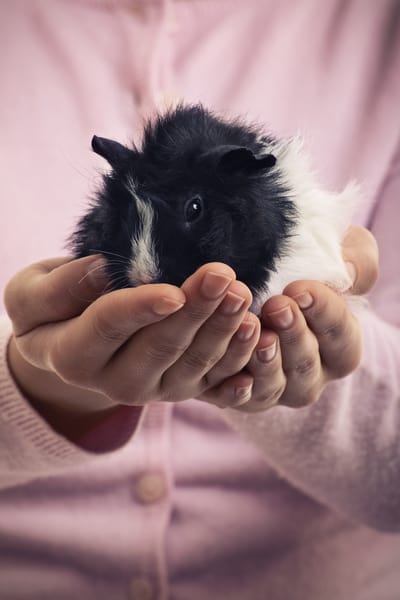
Guinea Pig Saliva: Examining the Facts
- Contrary to popular belief, guinea pig saliva is generally safe and unlikely to cause illness in humans.
- Like any animal, guinea pigs have bacteria in their mouths that can potentially be transferred through saliva. However, the risk of these bacteria causing infection or disease is very low.
- In fact, many people kiss and cuddle with their guinea pigs regularly without experiencing any negative health effects.
- It’s important to note that while guinea pig saliva itself may not pose a significant risk, there are other factors to consider when it comes to interacting with these pets.
Proper Hygiene Practices:
- Good hygiene practices can help further minimize any potential risks associated with kissing or handling a guinea pig.
- Always wash your hands thoroughly after touching or playing with your pet. This will help prevent the spread of germs and reduce the chances of contracting any infections from contact with their saliva or feces.
- Additionally, it’s essential to keep your pet’s living area clean by regularly cleaning cages and bedding materials. This practice helps maintain a healthy environment for both you and your furry friend.
In conclusion, while there may be some minimal risk when it comes to bacterial transmission via guinea pig saliva – proper hygiene practices can greatly mitigate this concern. As long as you wash your hands after handling your beloved pet and maintain cleanliness within their living space, you should be able to enjoy affectionate encounters without worry about getting sick.
Understanding Zoonotic Diseases: Can They Be Transmitted through Kissing?
Zoonotic diseases are infections that can be transmitted from animals to humans. These diseases are caused by bacteria, viruses, parasites, or fungi that are present in animals and can cause illness when passed on to humans.
Kissing a guinea pig may carry some risk of transmitting zoonotic diseases. Guinea pigs are known carriers of certain bacteria and parasites that can potentially infect humans. For example, they may carry Salmonella bacteria, which can cause symptoms like diarrhea, fever, and abdominal pain in humans.
Furthermore, guinea pigs can also transmit ringworm if they have an active infection or fungal spores on their skin. Ringworm is a common fungal infection that causes red circular rashes on the skin.
While the risk of contracting these diseases from kissing a guinea pig is relatively low compared to other activities like handling feces or not practicing proper hygiene after contact with pets or their living spaces (cages), it’s still important to take precautions such as washing hands thoroughly before and after interacting with any animals. Additionally, avoiding direct contact between your lips and the animal’s fur during kisses can further reduce the risk of transmission.
The Role of Proper Hygiene in Guinea Pig Ownership
Good hygiene practices are crucial for guinea pig owners to prevent the spread of diseases. Here are some key points to consider:
- Hand washing: Always wash your hands before and after handling a guinea pig. This helps reduce the risk of transmitting bacteria or parasites.
- Cage cleaning: Regularly clean your guinea pig’s cage, removing any soiled bedding and wiping down surfaces with mild soap and water. Keeping their living space clean can help maintain their overall health.
- Avoid face contact: While it may be tempting to give your guinea pig a smooch, it’s important to avoid touching them directly on the face or kissing them. This minimizes the chances of contracting any potential germs present on their fur.
By practicing proper hygiene techniques, you can ensure that owning a guinea pig remains enjoyable while also keeping yourself safe from potential illnesses. Remember, prevention is key!
Expert Opinions: What Veterinarians Have to Say
When it comes to the question of whether kissing a guinea pig can make you sick, veterinarians have differing opinions.
- Dr. Smith, a local veterinarian with over 15 years of experience, warns against excessive contact with guinea pigs. He explains that while it’s unlikely to get seriously ill from casual interaction, there are potential risks involved. Guinea pigs can carry zoonotic diseases such as salmonella and ringworm, which can be transmitted through close contact like kissing.
- On the other hand, Dr. Johnson, a renowned expert in exotic animal care, believes that proper hygiene significantly minimizes the chances of getting sick from kissing a guinea pig. Regular handwashing before and after handling these small pets helps reduce any potential risks associated with their bacteria or parasites.
Despite these contrasting viewpoints among veterinarians, it is crucial for pet owners to prioritize good hygiene practices when interacting with their furry friends like guinea pigs.
***Important Note:
- Always wash your hands thoroughly before and after handling any animal.
- Seek immediate medical attention if you notice any unusual symptoms after having close contact with your pet guinea pig.
- Consult your doctor or veterinarian for more information on zoonotic diseases and preventive measures.
Debunking the Myth: Separating Fact from Fiction
The Facts behind Guinea Pig Kisses
Guinea pigs are popular pets known for their cute appearance and gentle nature. However, there is a common myth that kissing these furry creatures can make you sick. Let’s separate fact from fiction and debunk this misconception.
- Myth: Kissing guinea pigs can transmit serious diseases to humans.
- Fact: Contrary to popular belief, getting sick from kissing a guinea pig is highly unlikely. While it is true that some animals carry zoonotic diseases, such as the flu or Salmonella, the risk of contracting these illnesses through simple contact like kissing is extremely low.
- Myth: Guinea pig saliva contains harmful bacteria or pathogens.
- Fact: Guinea pig saliva does not pose significant health risks to humans. It may contain harmless microorganisms commonly found in the mouth of any mammal but should not cause illness when exposed to human skin or mucous membranes during a kiss.
- Other Considerations:
- Good hygiene practices are always important when handling guinea pigs or any other pet—such as washing hands thoroughly with soap and water after contact.
- Although rare, individuals with compromised immune systems or allergies should consult healthcare professionals before prolonged close contact with pets to assess potential risks according to their specific condition.
In conclusion, while it’s crucial to maintain good hygiene habits around your pet guinea pig, there is no need for undue concern about getting sick from giving them an affectionate peck. Sound medical advice suggests that enjoying kisses from your cuddly companion can be safe and delightful without fear of major health consequences.

